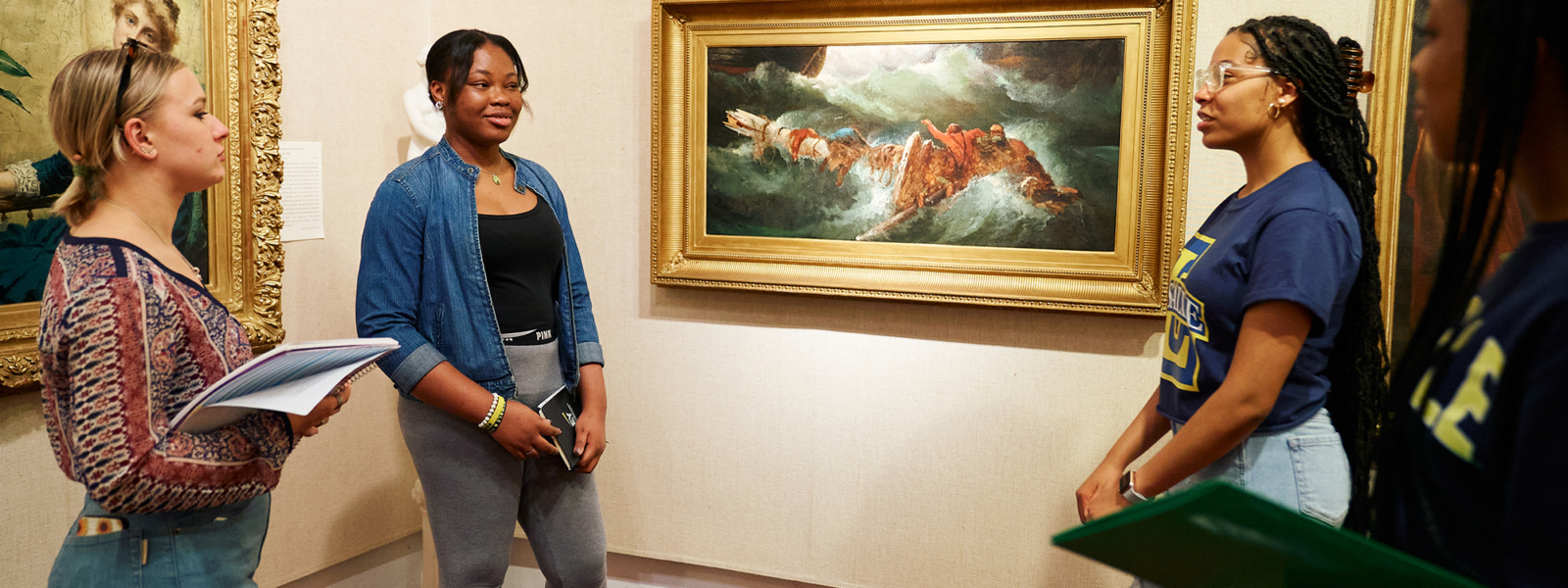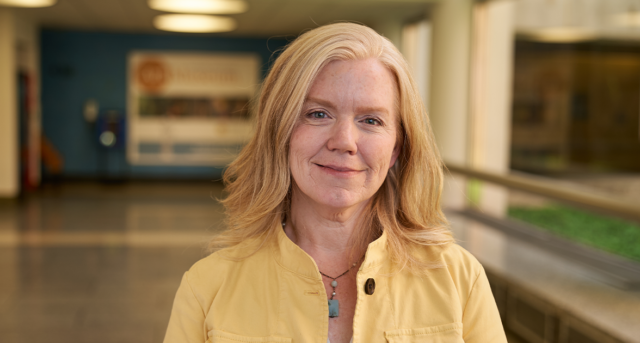La Salle University

What You’ll Learn
La Salle’s Art History major helps you understand and examine different cultures and their values, past and present, through the analysis of most artistic mediums including painting, sculpture, architecture, craft, photography, performance art, and public art. With small, innovative classes, and an impressive art museum on campus, you will deepen your understanding and appreciation for one of the most fundamental of the humanities while preparing for a lifelong career in Philadelphia and beyond.
Students in this major may also be interested in the Health Humanities minor.
Why Study Art History at La Salle?
With Center City Philadelphia at your doorstep, access to internships and experiential learning opportunities in the arts couldn’t be easier to find. Plus, the La Salle Art Museum is one of the University’s treasures, free for you to explore as a student. In addition to acquiring, preserving and exhibiting its collections, the Museum offers students an opportunity to sharpen their aesthetic perception and to investigate the interrelationships which emerge between art and other disciplines.
Highlighted Courses
Contemporary Art and Activism
Can art change the world? Can art change how we see the world? How and why has art been used as an agent for social change? This course explores the theoretical and historical underpinnings of activist art around the world from the 1960s to the present. We will examine a variety of contemporary artists who believe that art has the power to call attention to pressing social and political issues, question the status quo, communicate new perspectives, and inspire us to take action.
Women and Art
This course encourages students to think critically about the contributions of women artists, collectors, critics, models, and viewers to the fields of art and art history. These are areas that have been historically dominated by men, and this course requires that students look beyond the traditional models of art criticism to consider how gender has shaped women’s artistic practice and their response to works of art.
Art and Medicine
In this course, we explore the common goals of art & medicine and gain new perspectives on illness, anatomy, public health and medical issues within philosophical, cultural, and historical contexts. The basic skills gained in an art history course—a type of visual literacy that teaches a keen sense of observation along with social context and analysis—serves students in the health science fields quite well, as noted in an important 2001 study in the Journal of American Medical Association demonstrating that the skills learned in a typical art history class produce better doctors. Together, we will study and apply the common observational and analysis methods essential for students in both art history and the health sciences. We will visit The La Salle University Art Museum regularly for our practical applied “lab” sessions.
Colonial to Contemporary Latin American Art
The year 1492 saw the beginnings of the complex convergence of Spanish, Portuguese, Indigenous, African, and Asian cultures in the Americas. This course will explore the visual culture of Latin America beginning with the Spanish and Portuguese arrival and colonization of the New World to the present. The theme of cultural encounters will be the thread that ties the artistic production of a variety of Latin American artists and cultures as we move from the colonial period through the nineteenth century to modern and contemporary art.
Meet the Faculty
Professor Mey-Yen Moriuchi recently co-edited The Routledge Companion to Art and Activism in the Twenty-First Century, a compilation of 23 essays that explore the depth and breadth of art and activism today. This resource is utilized in her courses on Contemporary Art and Activism and Women and Art. Learn more about La Salle’s art history professors.
La Salle University has received a high honor in the world of humanities. The National Endowment for the Humanities (NEH) has awarded La Salle a NEH Connections Grant, building the foundation to fund a health and humanities minor that will explore the relationships between health and the human condition.
